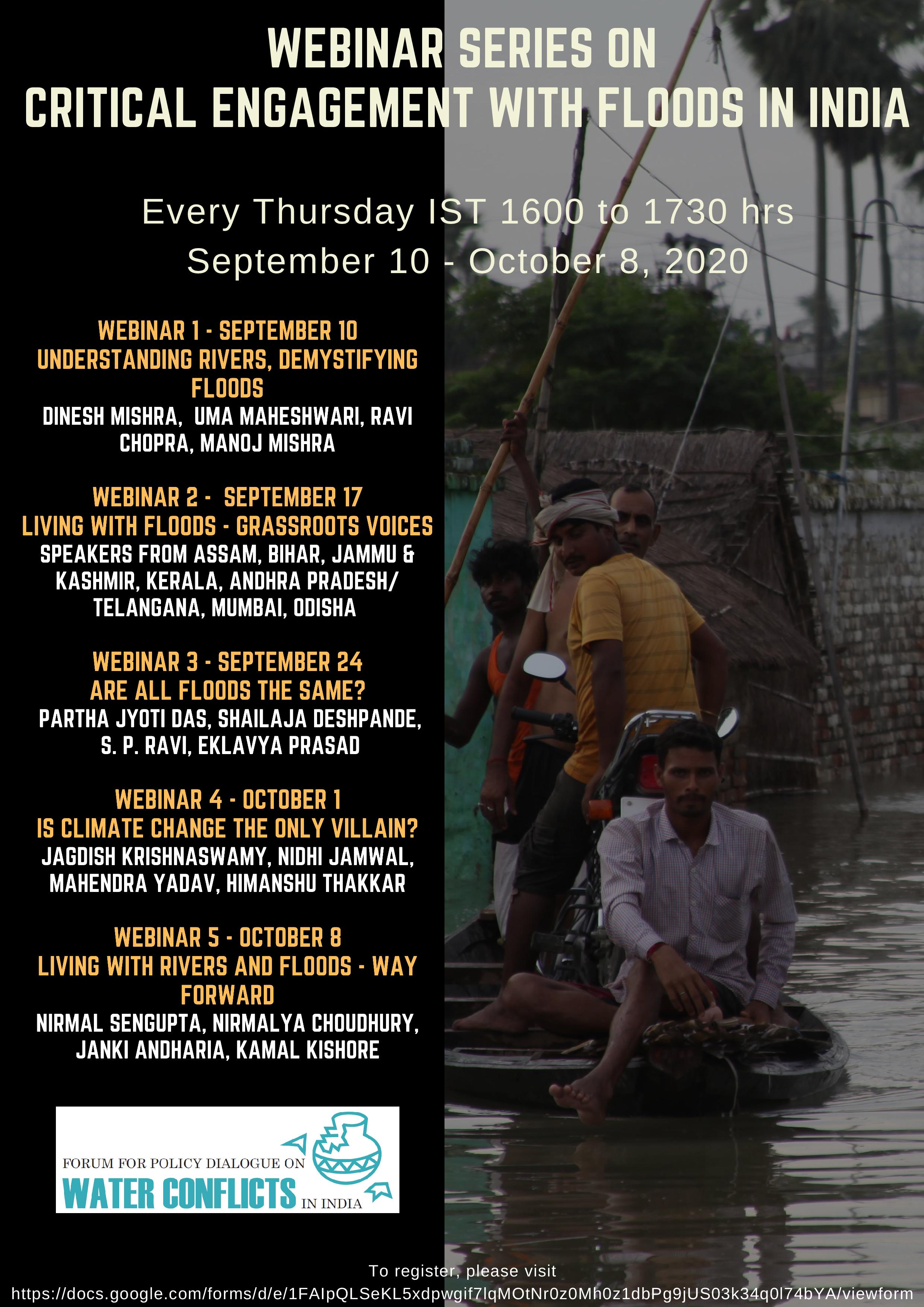Governance
Uttarakhand: Reaching the unreached
Posted on 11 Sep, 2020 07:48 PMPeople in remote hamlets left out by previous schemes like Swajal and Sector Wide Approach Program of the Uttarakhand Jal Nigam and Uttarakhand Jal Sansthan longed for household-level piped water supply for drinking and domestic purposes.

Expression of Interest (Eol) for Sector Partner, Jal Jeevan Mission
Posted on 11 Sep, 2020 01:18 PMMany organizations, individuals already working in the field of water have shown genuine interests to be partner in this pan-India programme, Jal Jeevan Mission.

All hopes lost for the flood-hit in Bihar
Posted on 11 Sep, 2020 08:06 AM“We went through a lot of trouble over the month. By God’s grace, we are still surviving."

Agriculture and food security challenges amid Covid-19
Posted on 09 Sep, 2020 03:32 PMIndia has seen large scale rural-urban migration of people trying to escape rural distress in the last few decades.

Nashik civic body frees Godavari using riverfront development funds
Posted on 08 Sep, 2020 03:57 PMA civic body frees a river instead of concretising it, for the first time

Empowering, involving local communities crucial for reviving Yamuna: Study
Posted on 07 Sep, 2020 12:56 PMThere aren’t many studies on understanding the socio-economic impact of river pollution, and the handful of those available miss out on capturing the voices of the local communities who are most affected by river pollution.

IUKWC Virtual User Engagement Initiative 2020
Posted on 04 Sep, 2020 07:24 AMIUKWC has put together a set of interviews with researchers from six Indo-UK projects that provide an overview of their research outputs and how these can support water operations, management and/or decision making.
Fully interactive - interviewees will be available to answer your questions during two hour windows
Webinar Series - Critical Engagement with Floods in India
Posted on 03 Sep, 2020 03:49 PM
About the webinar:
Ganga's riverine communities in troubled waters
Posted on 01 Sep, 2020 03:04 PMA large section of the population living in the Ganga river basin still depends on the river for daily use activities and livelihood. Hence, the cleaning of the Ganga river’s water and making it safe for use remains a major goal for policymakers.

Is the draft EIA notification 2020 anti-environment?
Posted on 30 Aug, 2020 04:48 PMEconomic development and creation of jobs have been India’s most critical challenges, and continue to be an overriding priority for the government. India’s rise in the World Bank’s global ranking on the ease of doing business is complemented with a successive downturn in its position on the Environmental Performance Index (EPI) from 2014 to 2019.






